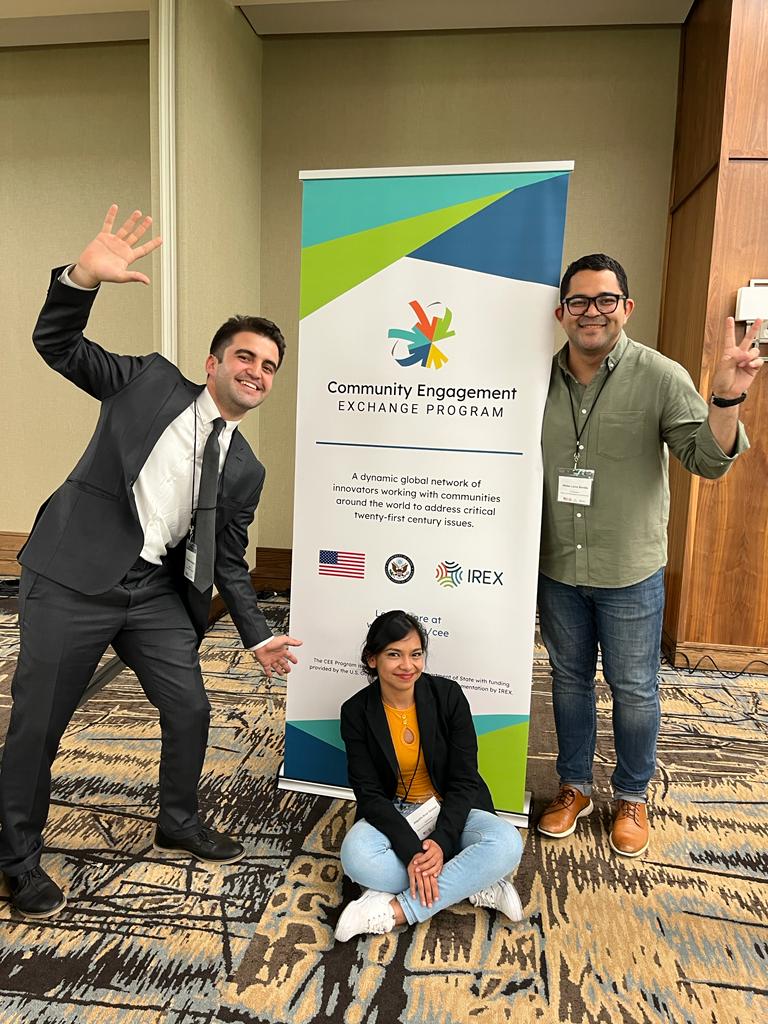Alumni Spotlight: Guatemala
Hello, I am Jacky Salazar, a UGRAD alum from Guatemala who attended American University in the spring semester of 2017. The Global UGRAD Program is a life-changing experience that fosters both professional and personal growth in each and every participant. It also allows you to be part of a family that extends across countries and cohorts. My experiences as a Global UGRAD had a catalytic effect on my professional career and cultivated my passion for community service. Following my time as a UGRAD, I began working with projects sponsored by the United States Agency for International Development (USAID), where I immersed myself in the field of governance and learned that good governance is the foundation of equitable development.
I felt compelled to share the knowledge I’ve gained and my experiences with others in my community. In 2019, I founded a civil society organization that delivers support to community leaders, youth, and women. My organization provides training for indigenous female entrepreneurs, education and technology programs for youth and adolescents, and capacity-strengthening courses for community council members. To date, we have implemented more than 21 programs impacting over 1,800 people across the Western Highlands of Guatemala, one of the regions of my country with the greatest need.

I am on a mission to continue working to effect positive change by expanding my organization’s programs nationwide. To deliver on that goal, I actively seek ways to refine my leadership skills and knowledge of community development approaches. This led me to partake in the Community Engagement Exchange Program (CEE), which is sponsored by the U.S. Department of State’s Bureau of Educational and Cultural Affairs (the same bureau that sponsors the Global UGRAD Program). This professional development program allows me to connect with like-minded young change-makers from across the globe while incorporating professional mentorship opportunities from U.S.-based NGOs and grassroots organizations. As a CEE fellow, I am currently collaborating with the United States Hispanic Leadership Institute based in Chicago.
During my CEE fellowship, I met two fellow UGRADs, Walter Leiva from El Salvador (cohort 2009-2010), and Hadyatulloi Azimzoda from Tajikistan (cohort 2019-2020)! During introductions, we shared our professional background and all three of us proudly mentioned the program. It was then that we realized we were part of the amazing Global UGRAD family. After exchanging glances, we knew what our next words would be, and we said them loud and proud, “Once a UGRAD, always a UGRAD!”
I was so happy to connect with Walter and Hadya. Walter serves as the Chief of Party for a Glasswing International-administered program in the governance and transparency sector in El Salvador. Hadya works for the Organization for Security and Co-operation in Europe. We happily reminisced about our time as UGRADs. It turned out that, like me, Walter was also placed at American University during his time on-program, while Hadya spent his UGRAD semester at Georgia College & State University. All three of us spoke about our shared passion for community development, particularly working in the governance sector to promote open and participatory governments in our respective countries. My encounter with these amazing UGRADs gave me pause to reflect on the tremendous impact that the Global UGRAD Program has in the lives of scholars, cohort after cohort. I know for a fact that for Walter, Hadya, and myself, Global UGRAD became a gateway leading to professional careers in the field of governance.
As the newest cohort of Global UGRAD alumni makes their way back to their home countries, I would like to tell you all that the feelings of nostalgia and reverse culture shock are perfectly normal. Some of you might also feel overwhelmed and uncertain about what the future holds for you. I encourage you all to be brave, and resilient, and pursue your dreams and passions, whatever they may be. Understand that everyone’s path is different, but persistence and determination are key. Keep in touch with people you met in the U.S., particularly university counselors and professors. More often than not, they will have great resources and opportunities to share with you. Finally, don’t forget to give back to your community – even the smallest action has a multiplier effect!